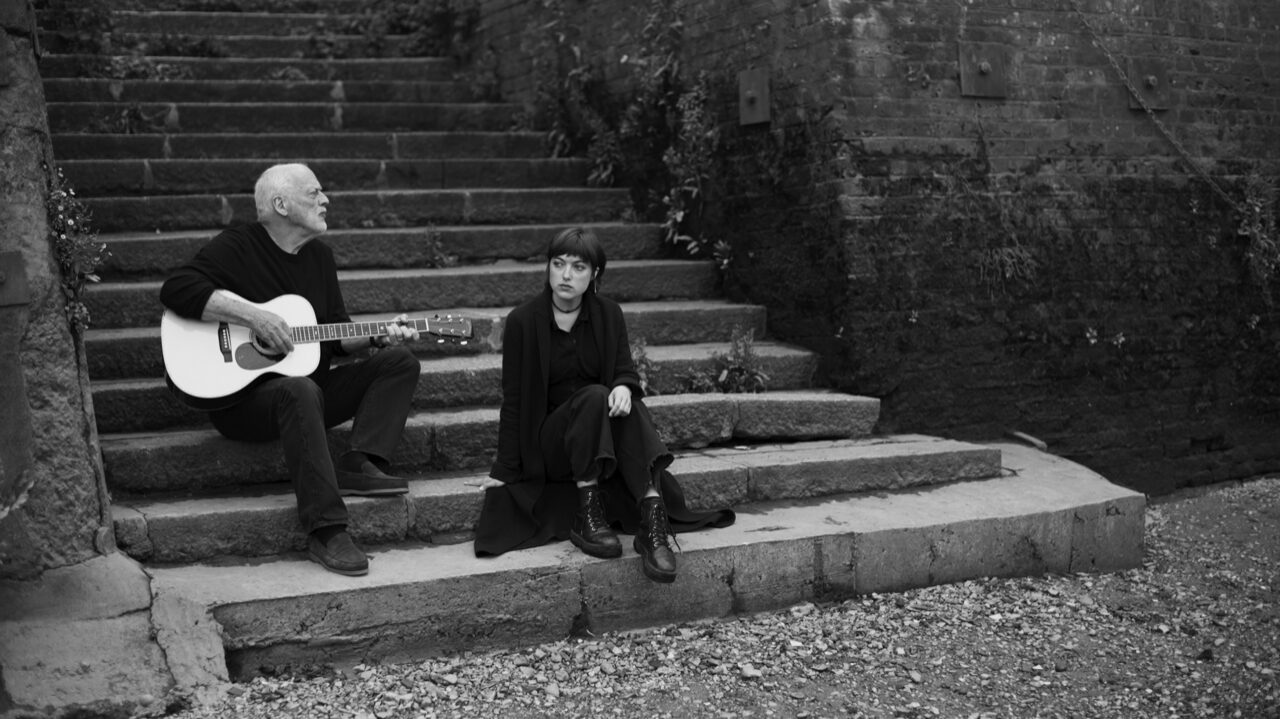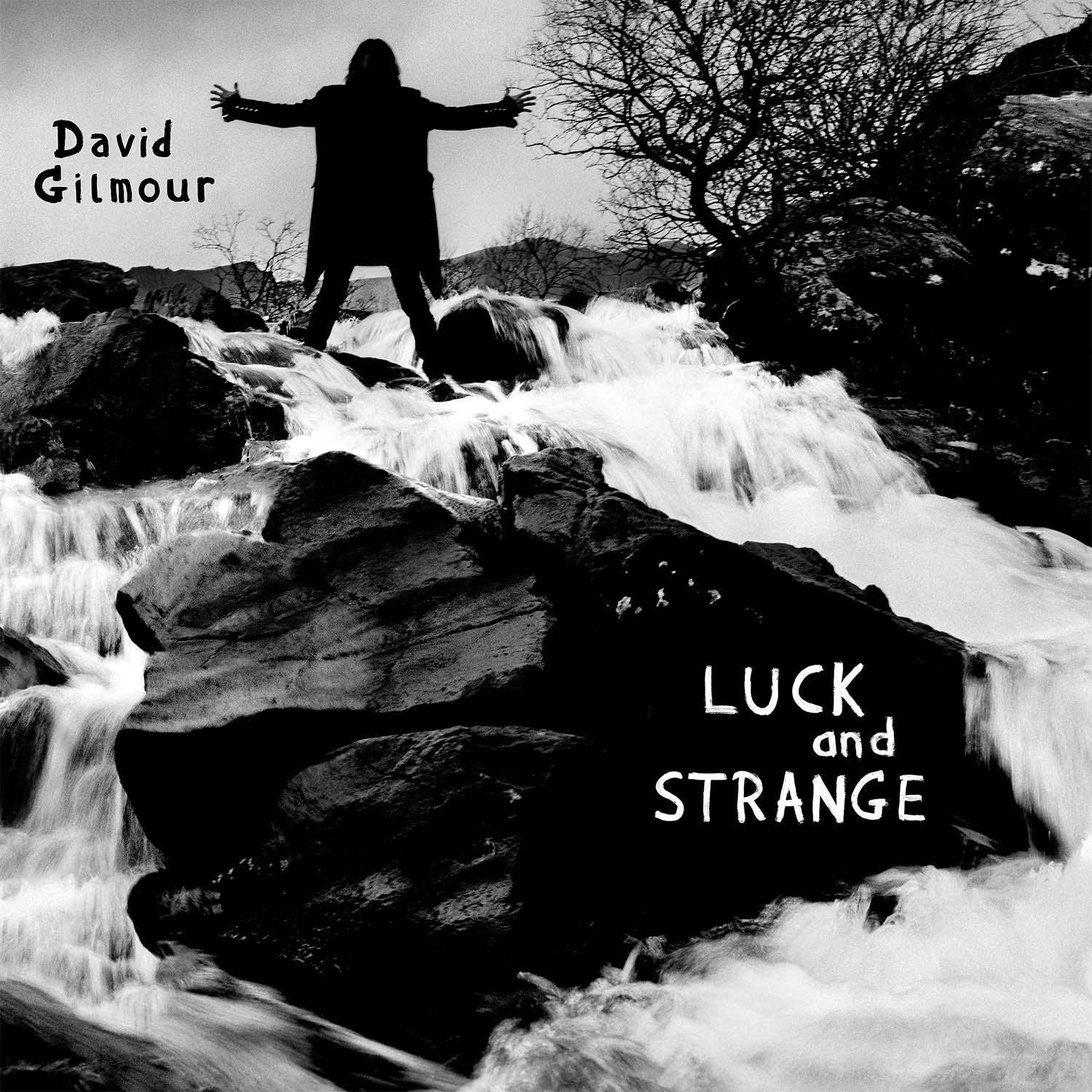After 9 years since his last album release, David Gilmour, the legendary guitarist and vocalist of Pink Floyd, delights us with his new album, titled “Luck and Strange”. I believe many around the world were eagerly anticipating this release since its announcement.
The album’s music dives deep into the classic Floyd sound, more than I could have imagined, considering the different direction Gilmour took with “Rattle That Lock,” his previous album. It’s a return to his essence.
This is evident from the opening track – which gives the album its name – featuring a posthumous participation from Pink Floyd’s own keyboardist, Richard Wright, through snippets of a jam session with Wright from nearly 20 years ago. This track completely recalls Floyd in their later period, something that will undoubtedly captivate the group’s fans.

Wright isn’t the only important figure in Gilmour’s personal life featured on the album. In many ways, “Luck and Strange” is a family affair.
The bass recording was mostly handled by Guy Pratt, who replaced Roger Waters in Pink Floyd and has been accompanying Gilmour ever since. Additionally, writer Polly Samson, David Gilmour’s wife, penned the lyrics, a role she has fulfilled for all of Gilmour’s musical projects, starting from Pink Floyd’s album, “The Division Bell”.
Most notably, Romany Gilmour, his daughter, lends her voice to some songs. Certainly, one of the highlights is “Between Two Points,” with Romany as the lead vocalist. This track nearly brought tears to my eyes from the start due to its emotional impact. Romany’s voice is beautiful, as is her performance. The music is slow, nostalgic, intense, and utterly Floydian.
The lyrics of this song, a realistic reflection with a pessimistic tone, invite us to accept the limitations of our existence and perception. It includes some of the album’s most powerful lines:
“Just let them walk all over you. Laugh through the punches and the pain. Let the life-blood drain away from you. They’re right, you’re wrong.”

The album’s lyrics are generally realistic, and express conclusions alluding to the limitations of our humanity, nostalgia for the passage of time, and our mortality. To make this theme clearer, the album even includes a short instrumental piece less than a minute long called “Vita Brevis,” which translates from Latin to “life is brief.”
Examples of this can be seen in the song “Sings,” which opens with the line “Darling turn back the clock. Give me time, make it stop.”
And it’s even more evident in the song “Scattered”, ” A man stands in a river, pushes against the stream Time is a tide that disobeys, it disobeys me.”
Or in the song “The Piper’s Call”, which has this phrase, “The promise of eternal youth. The spoils of fame, a carpe diem attitude.”
I must say, I can’t help but think the title and lyrics of this song allude to another familiar and important figure for Gilmour: Syd Barrett, the original guitarist and vocalist of Pink Floyd, who composed and named their first album, “The Piper at the Gates of Dawn.”
“The Piper’s Call” concludes with an interesting blues-sounding guitar solo.

And speaking of solos, one of the guitarist’s most distinctive features, do they sound like David Gilmour? Absolutely, though in my opinion, Gilmour doesn’t reach the majestic heights he once did effortlessly in his prime years.
Still, his touch is unmistakable, and for those of us who have been fans of Floyd and David Gilmour, listening to him play is like encountering a familiar and cherished sound. Like coming home. And well, even a Gilmour off his best is better than many other guitarists.
Gilmour’s voice, at 78 years old, still sounds quite good. Though not as dynamic as in past times, it carries that familiar tone that will always be welcome.
The album features instruments not typically associated with Gilmour, such as the harp, notable in “Between Two Points,” and “Yes, I Have Ghosts”, or strings, especially in “Scattered”. Following this, there’s the typical rock and Floydian musical arsenal we might expect.
“Scattered,” the longest track on the album at seven and a half minutes, is a slow and atmospheric piece, with an intimate vocal performance by Gilmour. The song concludes with a solo on acoustic guitar, something not so usual for the guitarist, preparing us for the true final solo, executed on his familiar Stratocaster.
The only song that significantly deviates from the slow, floydian nostalgic rock sound is “Dark and Velvet Nights,” which showcases a catchy, vibrant rock-jazz rhythm, reminding me of the more upbeat and jazzy sound from Gilmour’s previous album.
The album ends with “Yes, I Have Ghosts,” a beautiful piece on acoustic guitar, accompanied by strings and harp, sung by Gilmour and joined by Romany. It contains one of my favorite lines from the album, with which many can identify:
“Yes, I have ghosts, not all of them dead. Making dust of my dreams, spinning round and around, around in my head.”
Gilmour confesses that, despite being an acclaimed, millionaire, and legendary rock star, he too has to deal with his own ghosts. Again, the theme of human limitation, something universal, surfaces.

I think with “Luck and Strange,” Gilmour is looking back, compiling the experiences and conclusions of his life from the perspective of old age, with the wisdom that comes from accumulating so many experiences, but also with the feeling of facing the reality of an inevitable and increasingly imminent farewell from this world.
It’s very significant to have included so many important figures from his life, from Richard Wright and his family, to possibly even Syd Barrett.
And we can only speculate how many personal references there might be in the lyrics to Roger Waters himself. This is plausible, considering not only the notorious and public bad relationship Gilmour and Waters have maintained since the bassist left Pink Floyd, but also the fact that Gilmour decided to release “Luck and Strange” on September 6th, Waters’ birthday. This was definitely not a random choice. There must be a message there for old Roger.
As an additional note, the streaming version of the album includes, as a bonus track, the instrumental jam by Gilmour and his band, including Richard Wright, which was the basis for the song “Luck and Strange”. A pleasant moment for any Floyd fan, as well as for anyone wanting to delve deeper into the album.
“Luck and Strange” is an album I recommend to all fans of slow rock with a deep and nostalgic sound. Above all, it seems indispensable for devotees of Pink Floyd and David Gilmour’s solo work, offering an authentic interpretation of that majestic sound we treasure so much. No listener will be left unsatisfied; this album is a worthy continuation of his musical legacy.






